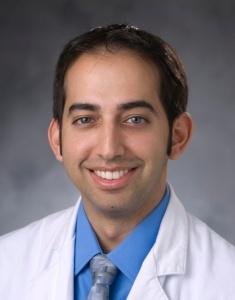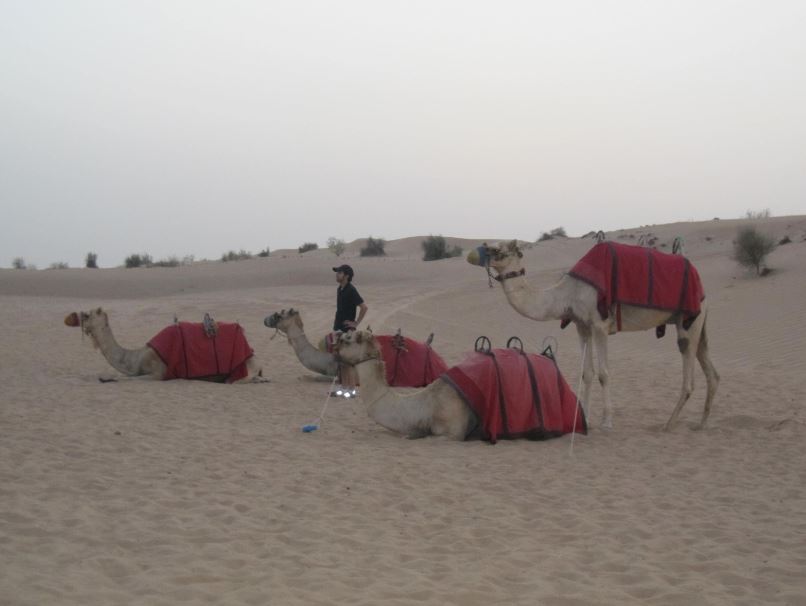
Sujay Kansagra, MD, decided to focus on neurology and pediatric sleep as a medical student, both because of the room the field offered for research and education. Now at Duke, he’s helping to treat children with troubled sleeping and overseeing the training of the next generation of child neurology residents. In this week’s Faculty Spotlight, Kansagra talks to us about how the sleep needs of children compare to those of adults, and how he’s adapting at work and at home to treat patients, train residents, and care for his own children during the age of COVID-19. He also shares ways that all of us can get better sleep as we all cope with the stresses of the pandemic.
What were your pre-COVID responsibilities at Duke?
My two main areas of focus are on medical education and clinical practice of pediatric sleep medicine. I serve as the program director for the child neurology residency program as well as the director of the pediatric neurology sleep medicine program.
How has the COVID-19 pandemic affected your work? What’s one strategy you and your colleagues have used to adapt or compensate?
We've all had to make changes and adapt to our new normal. I'm grateful to work with trainees and faculty that are quite resilient in the face of change. As a team, we have made changes to our didactics and to both our inpatient and outpatient workflow. We're utilizing our telecommunication portals as best as possible to continue providing educational opportunities to our trainees. And our division faculty were early adapters to telehealth. In fact, we had more telehealth video visits in our division last week than any other division in pediatrics.
How do sleep-related health and needs of the pediatric population compare to those of adults? How much do treatments for these two groups overlap?
The majority of sleep medicine cases in pediatrics are related to either sleep apnea or insomnia, which is fairly similar to adult practice. Many treatment approaches overlap as well, such as use of CPAP and therapies like CBT for insomnia. However, we also utilize surgical approaches more often in children for sleep apnea, since their obstruction is often due to tonsillar and adenoid hypertrophy. And for trouble sleeping in very young children (infants and toddlers), the treatment involves mostly behavior modification of the parents, not so much the patient.
How and when did you initially become interested in neurology, and in pediatric sleep medicine in particular?
It wasn't until medical school that I decided on both neurology and pediatric sleep. It intrigued me because it is a relatively new field with lots of room for research and education. And because I'm an expert sleeper, it seemed like a good fit.
What do you enjoy most about your work?
I am surrounded by people that love what they do, and derive joy from taking care of patients. It makes it a wonderful working environment. As program director, I also get to watch our trainees blossom into attendings and do great things once they leave Duke.
What’s the hardest part of your job?
Like many others, this current time of school closures has created quite a challenging situation for those with kids. So right now, the hardest part of my job is making sure my wife and I adjust our schedules so that the kids are taken care of, while still fulfilling work requirements. That has entailed often watching kids during the day and doing telehealth clinics in the evenings/nights. But at the same time, it has been great spending more time with my family.
How has the ongoing COVID-19 pandemic affected people’s ability to sleep? What are some ways people can improve their sleep during these difficult times?
The pandemic has certainly increased stress and anxiety levels while disrupting our normal routines. Often sleep pays the price for these changes. My recommendations are to keep the nighttime routines the same, try to wake at the same time each morning, don't use your bed/bedroom for work-related matters (save it only for sleep), and try to consume news in small quantities, particularly if it's causing anxiety.
What passions or hobbies do you have outside of Duke?
I enjoy (or more accurately, enjoyed) travelling with my family. I have a passion for writing and medical education. I've written a few books and also have an online following on Twitter where I enjoy giving advice on medicine and sleep.
